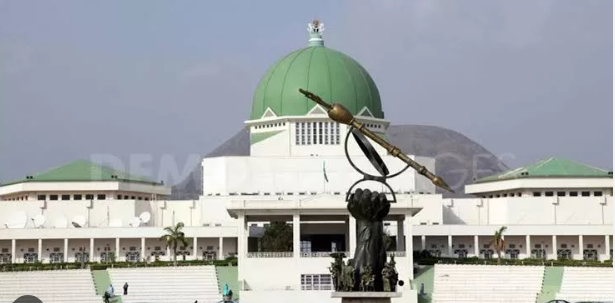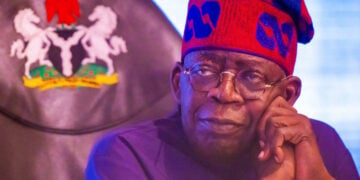A powerful coalition of female politicians, lawyers and civic leaders has thrown its weight behind the ongoing push for the Women’s Reserved Seat Bill, describing it as a long-overdue legislative step to correct Nigeria’s alarming gender imbalance in politics.
From the halls of the National Assembly to grassroots networks, female voices from across sectors are aligning to demand not just advocacy, but constitutional action.
The female lawyers and prominent politicians spoke on the proposed bill currently being debated as part of the constitutional amendment process which seeks to create 74 additional dedicated seats for women in the National Assembly and more than 160 additional seats in state legislatures.
Leading the charge , Nigeria’s youngest female lawmaker and a rising figure in Kwara politics, Hon. Rukayat Shittu, described the bill as “A bold move toward generational justice and a reflection of the political inclusiveness that enabled her rise at age 26.
She said, “Inclusion doesn’t happen naturally in this system. It has to be engineered, protected, and enforced. This bill is not a concession, it’s a correction. It’s what countries like Rwanda and Uganda have done, and Nigeria must follow suit.”
Citing Nigeria’s abysmally low 3.6 per cent female representation in elected positions , which she said was far below the global average of 26.5 per cent, other females who supported her said, the bill is necessary to ensure that the voices of half the country’s population are heard and reflected in lawmaking.
While some suggest the reserved seats should be temporary, many supporters recommend a review mechanism after several election cycles rather than an abrupt removal. “It should be permanent in the short term, but subject to review based on impact. Once parity is achieved, then we can reassess,” said Shittu.
Prominent constitutional lawyer, Dr. Lilian Ojimma echoed same view, saying the bill must become law if Nigeria is serious about democracy. “Women are not second-class citizens. We are as intelligent and capable as men. What we lack is access, and this bill creates that.”
Absolutely, we need more women in politics and government. Women make up half the population, so it only makes sense that they have strong representation. It’s not just about men being untrustworthy; women are just as intelligent and hardworking, so why shouldn’t they be equally involved?
There needs to be greater awareness, especially considering our cultural background. Women must begin to see themselves as equals to men, capable of leadership and decision-making.
Religion also influences our actions, including politics, but women have every right to participate, represent themselves, and speak for their communities. Without this awareness, women will continue to be viewed—and used, as mere numbers to fill quotas, while men use them to complete their campaign teams.”
She stressed the need for sustained public awareness to shift societal mindsets rooted in patriarchy and religion. “Many women are still made to believe politics is not their space. That must change. Representation matters for women, for children, and for national progress.”
On their part, legal experts shares the opinion that the current political structure has historically sidelined women, not only through party systems but also through financial barriers and intimidation.
Barrister Hajara M. Junaid who fronted this view said, “ it’s time for women to stop playing supporting roles and take their place as leaders.
“Women are proven nation-builders. The argument that men should continue to dominate governance is outdated. There’s no better time than now to enshrine inclusion in our constitution,” she said.
“I believe it’s a step in the right direction, but challenges remain. For example, women’s participation in elections depends largely on political parties. If there’s no mechanism to require parties to allocate a certain percentage of representation to women, they will continue to be sidelined. Courts often avoid intervening in party matters, but if this becomes a constitutional requirement, then parties will have to comply.
For instance, if parties submit candidate lists to INEC that don’t meet the required quota, INEC can reject them. So yes, it’s definitely a positive move forward.”
Women’s organisations such as UN Women, Women in Politics Forum, and Women’s Trust Fund have been holding training sessions for aspiring female politicians across the country in anticipation of the bill’s passage.
“Women are ready. The training, the networks, the vision, they’re all in place. Now, we just need the law to unlock the doors,” Junaid added.
Enough of women sitting back and folding their hands, allowing men not only to dominate politics but also to dictate their paths. There is no better time to make their case than now, with the constitutional amendment underway.
“Many intelligent women have much to offer, often more than their male counterparts. They should step forward, compete confidently, and refuse to let anything stifle their ambitions,” she said.
From civil society groups, a former youth party leader and IPAC executive,
Georgina Dakpokpo, described the bill as a vehicle to strengthen both the legitimacy and the quality of Nigeria’s democracy. She said, “This isn’t just a gender issue, it’s a democratic one. When half the population is excluded, democracy suffers.”
She argued that increased female presence in parliament would lead to better representation of critical issues such as reproductive healthcare, maternal welfare, small business support, and children’s rights, areas often overlooked in male-dominated legislatures.
Responding to critics who say the bill would raise the cost of governance, the real cost lies in continued exclusion. “If you look at the social and economic contributions of women, particularly in the informal sector, you’ll see that investing in their political inclusion pays off,” Dakpokpo said.
LEADERSHIP Weekend recalls that there is also mounting pressure on the Independent National Electoral Commission (INEC) to ensure political parties implement internal gender quotas and submit gender-balanced candidate lists. Advocates are calling for enforceable mechanisms within the bill to prevent tokenism or circumvention.
Though male lawmakers have given verbal support in public, observers warn that true commitment will be tested on the floor of the National Assembly.
Responding to this, Dakpokpo said, “Some are genuine, but many still hold deep-seated biases. This is where leadership in the chambers must show vision and resolve.
In a phone interview with The League of Women Voters of Nigeria (NILOWV), the League’s President, Irene Awunah-Ikyegh, described the bill as a long-awaited “low-hanging fruit” for Nigerian women striving for political inclusion.
“It is a moment of true reflection,” Awunah-Ikyegh said. “Women in this country finally see a possibility of having a seat at the table where decisions are made—where their voices can be heard and where they can influence policies affecting women and children.”
Awunah-Ikyegh emphasised that Nigeria remains one of the least gender-inclusive countries in Africa. This bill, she said, represents more than just increased representation—it is a commitment to real democracy.
“The absence of women in decision-making means inclusivity is lost. Numerous studies have linked Nigeria’s slow development and poor governance to the lack of inclusive leadership.”
She pointed to the private sector—where women lead in banking, education, and commerce—as a model of the success that inclusive leadership can bring. The contrast with Nigeria’s male-dominated political arena is stark.
“Women bring legitimacy, transparency, and vision to governance,” she added. “They are not known for thuggery or ballot-snatching. Instead, they restore integrity.”
Structural Barriers and the Gatekeepers of Politics
Awunah-Ikyegh also detailed the systemic challenges women face within political parties, from male-dominated delegate structures to symbolic positions that exclude women from real power.
“Party leadership has been designed to exclude women,” she explained. “Most decision-makers are former male officeholders. Women are often relegated to token roles like ‘women leader,’ with little influence.”
She also criticized the so-called “free nomination forms” offered to women, calling them deceptive.
“They are not truly free. Women still pay hefty ‘expression of interest’ and admin fees. Then, after paying, they are told to step aside because the form was free. It’s a trap.”
Moreover, Awunah-Ikyegh called out the role of cultural and religious narratives used to block women from seeking office.
“No religion outright forbids female leadership. It’s how traditions are manipulated that creates this exclusion.”
On her part, head of Chambers at EB Kizito and Associates in Jalingo, Mercy Ugbabe, shared her legal and personal views in support of the bill.
She said, “Women remain significantly underrepresented in Nigerian politics despite years of advocacy. We have yet to see a female governor. The prevailing perception is still that politics is a man’s domain.”
While Ugbabe believes women are capable of competing equally, she sees the bill as a potential turning point. “It will expand the political landscape and bring more experienced individuals into the fold. Women need to understand the legal framework and be courageous enough to run for leadership positions.”
She also emphasised that social skills and a keen awareness of political dynamics are vital for women aspiring to leadership roles.
Looking ahead, Awunah-Ikyegh revealed that several political parties are already preparing to fill the reserved seats, even though the bill has not been passed yet.
“We must ensure these seats are not given as political favors but go to credible women who can genuinely represent the interests of women and children.”
She also addressed concerns about costs, stating that the budgetary impact would be minimal.
“Adding 74 members would only increase the budget by about 1 per cent. That’s a small investment for more effective and inclusive governance. We lose far more through inefficiency and waste.”
“The bill is gaining momentum, with the League of Women Voters engaging the Inter-Party Advisory Council (IPAC), which has endorsed the proposal. The National Women’s Forum also supports it.
“Political parties are prepared,” Awunah-Ikyegh concluded. “They’re waiting on INEC to finalize the procedures. Once the bill passes, the process will begin in earnest.” ste stated.
With momentum still building, these female advocates and politicians say Nigeria stands at a defining moment in its democratic journey. “This is about the soul of our republic,” said Shittu. “If we miss this moment, we’ll keep repeating history. It’s time to legislate equity, not just advocate for it.”






